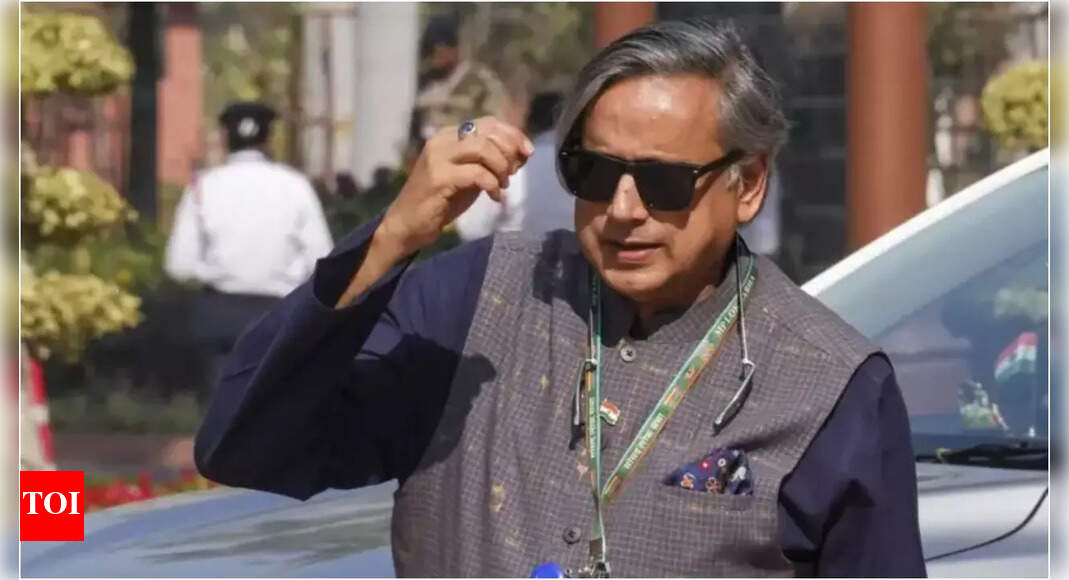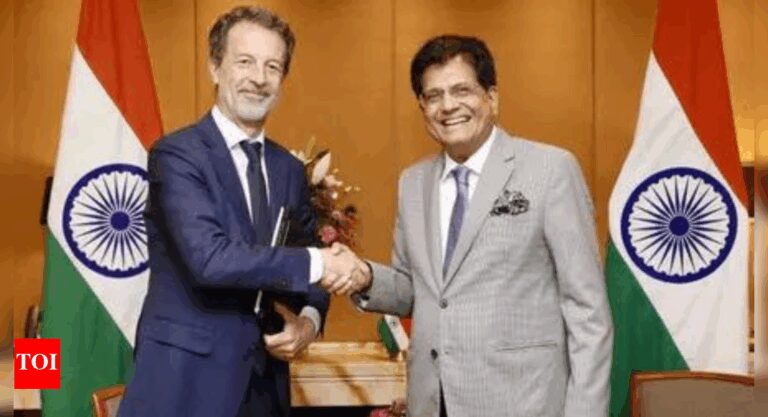Shashi Tharoor Critiques Colombia’s Reaction to India’s Counterstrike: A Defense of Operation Sindoor
Shashi Tharoor Criticizes Colombia’s Reaction to India’s Operation Sindoor
India’s recent military actions in Pakistan, dubbed Operation Sindoor, have generated a ripple of reactions around the globe. One such response came from Colombia, which expressed condolences for the casualties in Pakistan following India’s counter-strike. Congressman Shashi Tharoor, who is part of an all-party delegation currently visiting Colombia, voiced his disappointment regarding this stance and emphasized the necessity of distinguishing between aggressors and defenders in the ongoing conflict.
A Right to Self-Defense
Operation Sindoor was launched on May 7, a direct response to a terrorist attack in Pahalgam, which tragically claimed the lives of 26 individuals. As reported, this operation targeted known terrorist launchpads in both Pakistan and Pakistan-occupied Kashmir (PoK). The Indian Air Force also reportedly took down 11 Pakistani airbases in a series of retaliatory strikes against Pakistan’s unsuccessful military efforts to engage Indian positions shortly after the initial attack.
Tharoor, addressing the media in Bogotá, made it clear that India’s actions were not an aggressive stance but rather an assertion of its right to self-defense. He stated, “We are only exercising our right of self-defense.” This response promptly aimed to clarify any misconceptions held by Colombia regarding the legitimacy of India’s military actions against terrorist infrastructure.
Disappointment with Colombian Sentiment
Tharoor did not hold back in voicing his disappointment towards the Colombian government’s expression of sorrow for the casualties in Pakistan, instead of sympathizing with the victims of terrorism. "We will say to our friends in Colombia, there can be no equivalence between those who dispatch terrorists and those who resist them," he insisted firmly.
His frustration highlighted the challenges India faces from the international community in explaining the context of its military operations. The Congress leader also recalled that the terrorist attack in question was claimed by an organization linked to the notorious terrorist group Lashkar-e-Taiba based in Pakistan, which he emphasized during the press briefing.
Context of Operation Sindoor
Operation Sindoor was triggered by the alarming rise in cross-border terrorism stemming from Pakistan. Incidentally, here is a brief outline of the events leading up to the operation:
- April 22: A terrorist attack occurs in Pahalgam, resulting in 26 fatalities.
- Immediate Global Reaction: Condemnation pours in globally, yet no significant actions are taken against Pakistan.
- May 7: India launches Operation Sindoor, targeting identified terrorist infrastructure.
- Aftermath: The operation leads to the use of air power to undermine terrorist strongholds.
Tharoor emphasized, “India suffered grievous terrorist attacks. The world condemned the attacks, but no actionable steps were taken by the country from which these threats emerged.” This statement underscores India’s frustration with the perceived lack of accountability and action from Pakistan in combating terror activities that continually destabilize the region.
Highlighting Pakistan’s Role in Terrorism
Alongside his assertions about defending India’s territorial integrity, Tharoor painted a stark picture of Pakistan’s role in perpetuating terrorism. He referenced a widely reported funeral of a known terrorist that was attended by Pakistani military personnel, suggesting an alarming complicity between the state and terrorist organizations.
He stated, "That is the extent of the complicity that we are seeing between the terrorists who perpetrate crimes of this nature and those who finance, guide, train, arm, and equip them.” This narrative draws attention not only to the terrorism originating from Pakistan but also the international community’s response—or lack thereof.
The Necessity of Clear Communication to Allies
Shashi Tharoor’s delegation to Colombia appears to be part of a broader strategy by the Indian government to clarify its stance on terrorism and self-defense to international allies. Through engagements like these, India hopes to foster a better understanding of its military operations, particularly in such sensitive regions.
As India continues to navigate complex geopolitical waters, the importance of international perception and diplomatic relations cannot be overstated. Tharoor’s remarks serve as both a plea for understanding and a strong reminder of the challenges faced by nations in defending their sovereignty against external threats.
Final Thoughts
In summary, the unfolding dynamics between India, Pakistan, and international sentiments such as those expressed by Colombia illustrate the intricate web of global politics that nations must traverse. As Shashi Tharoor passionately advocates for India’s perspective on self-defense and counter-terrorism, his comments press for a more informed global dialogue on security measures against terrorism, ultimately calling for a united front against such pervasive threats.






